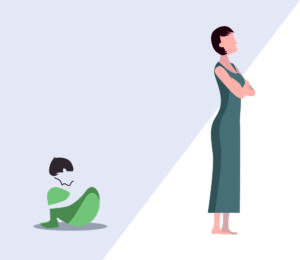CopeYouth: Children, Youth and the Covid-19 epidemic in Norway
This study is a continuation of the first UEVO-study in the context of a pandemic and the societal restrictions that follow. The purpose was to gain knowledge about the concerns of increased violence, abuse, and mental health issues amongst the young population in such uncertain times.
The findings from this study were presented in a report launched in January 2021 [Norwegian].
The sample for this study is the same, but slightly smaller, as in UEVO1. This allows us to compare the results from UEVO with the new data gathered during the Covid-19 pandemic first lockdown.
The questionnaire asked about school closure and remote learning, isolation and loneliness, relationship with friends and family, and the use of social media.
According to our results, there was no general decline of mental health issues in the youth population of Norway during the first wave of the Covid-19 pandemic. Some youths experienced the first wave as somewhat positive, perhaps due to a reduced pace in everyday life and more time with family. Those with already existing mental health issues experienced worsened symptoms, and are therefore identified as a vulnerable group in crisis situations.
1 in 6 exposed to violence
About 1 in 6 reported at least one form of violence or abuse during the eight weeks the school was closed. 20% of these experienced mental or physical violence for the first time during the lockdown. Violence was more likely in low-income families. Many experienced different forms of cyberbullying for the first time. Girls were much more vulnerable than boys.
Only 1 in 3 said they were told how they could contact the school health service during the closure. Many experienced a reduction or even loss of contact with therapists or a contact person in the child welfare service during the shutdown.
The survey reflects the situation right after the first reopening in the spring of 2020. There has since been new waves and local outbreaks of infections with partial closure, and we do not yet know how such uncertainty about the future can affect young people.

The findings from this study is a part of a three-part research program initiated by the The Norwegian Directorate for Children, Youth and Family Affairs (Bufdir). A second study has been conducted on youths living in public care at child welfare institutions. A third study has been conducted on Child Care Services data on reported cases during the pandemic.